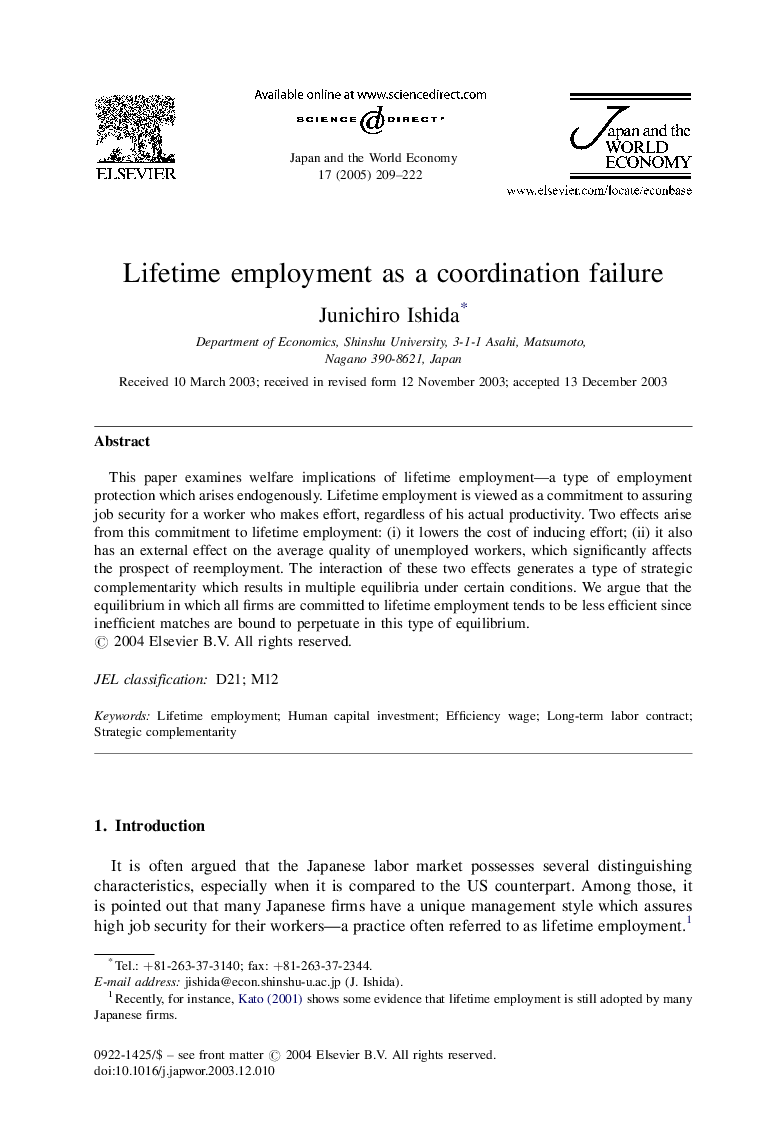| Article ID | Journal | Published Year | Pages | File Type |
|---|---|---|---|---|
| 9553146 | Japan and the World Economy | 2005 | 14 Pages |
Abstract
This paper examines welfare implications of lifetime employment-a type of employment protection which arises endogenously. Lifetime employment is viewed as a commitment to assuring job security for a worker who makes effort, regardless of his actual productivity. Two effects arise from this commitment to lifetime employment: (i) it lowers the cost of inducing effort; (ii) it also has an external effect on the average quality of unemployed workers, which significantly affects the prospect of reemployment. The interaction of these two effects generates a type of strategic complementarity which results in multiple equilibria under certain conditions. We argue that the equilibrium in which all firms are committed to lifetime employment tends to be less efficient since inefficient matches are bound to perpetuate in this type of equilibrium.
Related Topics
Social Sciences and Humanities
Economics, Econometrics and Finance
Economics and Econometrics
Authors
Junichiro Ishida,
